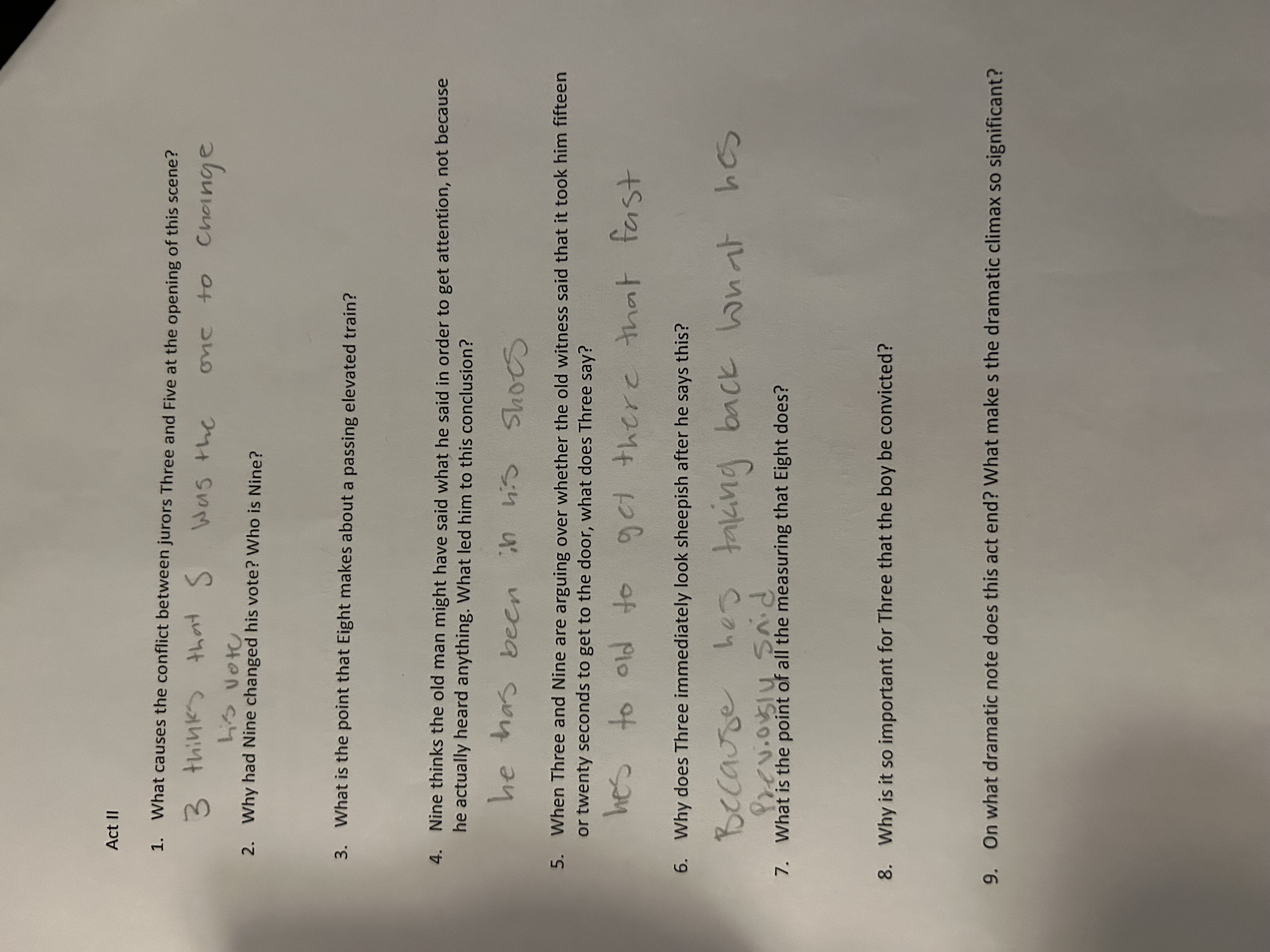What causes the conflict between jurors Three and Five at the opening of this scene? Why had Nine changed his vote? Who is Nine? What is the point that Eight makes about a passing... What causes the conflict between jurors Three and Five at the opening of this scene? Why had Nine changed his vote? Who is Nine? What is the point that Eight makes about a passing elevated train? Nine thinks the old man might have said what he said in order to get attention, not because he actually heard anything. What led him to this conclusion? When Three and Nine are arguing over whether the old witness said that it took him fifteen or twenty seconds to get to the door, what does Three say? Why does Three immediately look sheepish after he says this? What is the point of all the measuring that Eight does? Why is it so important for Three that the boy be convicted? On what dramatic note does this act end? What makes this dramatic climax so significant?

Understand the Problem
The question is asking for insights related to specific characters and themes in Act II of a specific play. It requires comprehension of the dialogue and character motivations, as well as their implications in the context of the act.
Answer
The conflict begins with a voting mistake by Juror Three. Juror Nine changes his vote due to skepticism. Key points: train noise's effect on testimony, and Juror Three’s bias. Act ends with Juror Three's emotional outburst.
- The conflict arises because Juror Three mistakenly believes Juror Five changed his vote.
- Juror Nine changes his vote because he doubts the old man's testimony and admires Juror Eight's courage.
- Juror Eight argues that the elevated train would have been too noisy for the witness to hear anything.
- Juror Nine believes the old man sought attention due to feeling unnoticed in life.
- Juror Three claims the old man couldn’t have reached the door that quickly.
- Three looks sheepish because his words contradict earlier statements.
- Eight’s measurements highlight the improbability of the timeline given by the witnesses.
- Juror Three is driven by personal biases and anger at young people.
- The act ends with mounting tension as Juror Three outbursts emotionally on being accused of wanting personal vengeance.
Answer for screen readers
- The conflict arises because Juror Three mistakenly believes Juror Five changed his vote.
- Juror Nine changes his vote because he doubts the old man's testimony and admires Juror Eight's courage.
- Juror Eight argues that the elevated train would have been too noisy for the witness to hear anything.
- Juror Nine believes the old man sought attention due to feeling unnoticed in life.
- Juror Three claims the old man couldn’t have reached the door that quickly.
- Three looks sheepish because his words contradict earlier statements.
- Eight’s measurements highlight the improbability of the timeline given by the witnesses.
- Juror Three is driven by personal biases and anger at young people.
- The act ends with mounting tension as Juror Three outbursts emotionally on being accused of wanting personal vengeance.
More Information
The noise from the elevated train and a misunderstanding about the verdict timeline are pivotal in casting doubt on the testimonies.
Tips
A common mistake is assuming personal biases don't play a significant role in jurors' decisions.
Sources
AI-generated content may contain errors. Please verify critical information